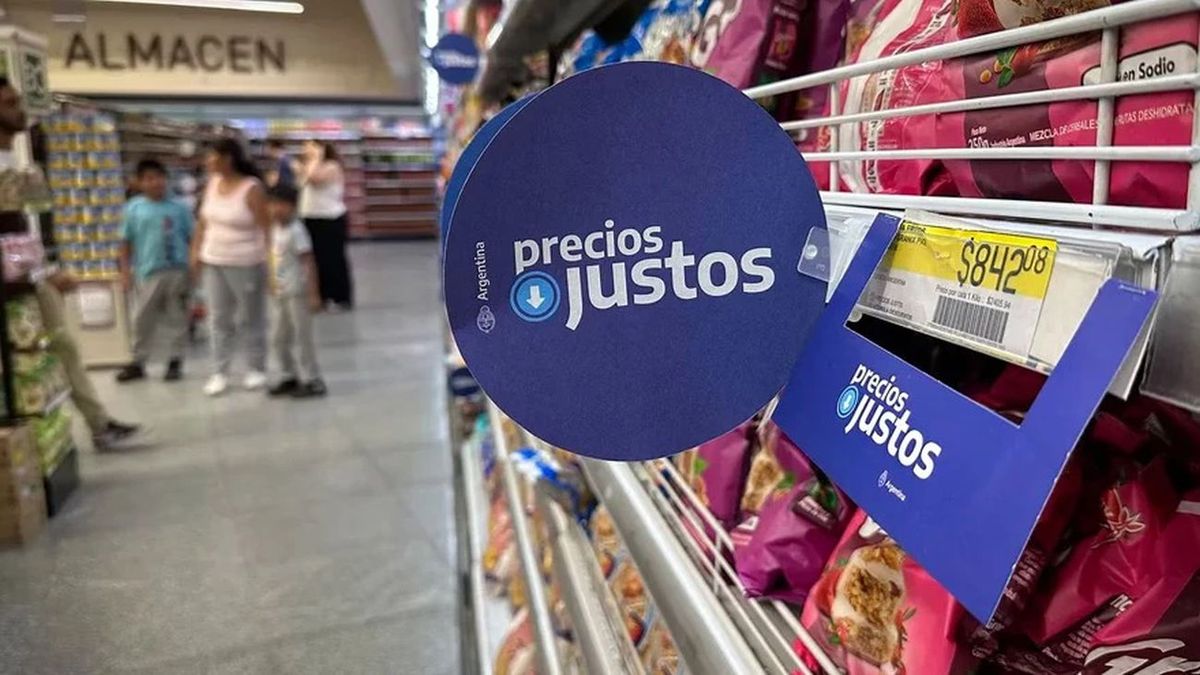As reported by the department of the Ministry of Economy, Fair Prices barriales is a new basket which is made up of more than 100 products of mass consumption and whose prices will remain fixed until next July 15, when they will have a 3.8% update.
The Secretariat in charge of Matias Tombolini reported that retailers will be able to purchase this basket in wholesale supermarkets such as: Maxiconsumo, Diarco, Yaguar, Vital, Parodi, Makro, Micropack and Ninias well as suppliers, to offer it to consumers at the suggested prices and with a reasonable and usual profit.
The expansion of the program controlled of marketing It comes at a time when, according to private sector calculations, inflation for the month of May is expected to be above 8.5% and close to 9%. In this way, the Consumer Price Index (CPI) accumulated so far in 2023 would be very close to 50%.
Featured Products List
However, and despite the fact that the agreement will be in force from this thursday june 1, the disembarkation of the same in the neighborhood shops will be gradual and will depend on how each establishment resolves the logistical issues. However, Commerce estimates that the products will be available from next week.
The list of products is available on the Secretariat’s website, which varies depending on the different regions of the country. For the Metropolitan Area of Buenos Aires (AMBA), the list includes a total of 95 items. These include various pantry items such as oil, rice, noodles, cookies, flour, breadcrumbs, jam, coffee, and tea.
In addition, drinks such as soft drinks, beer and mineral water are available, as well as dairy products (milk and yogurt, for example). Some of the cleaning items are also offered, including toilet paper and liquid soap; perfumery items, such as shampoo, deodorant and towels, and baby products (disposable diapers, for example).
What changes this time?
A novelty is that the new attempt to stop the rise in prices being carried out by the Commerce secretary It consists of including wholesale chains in the maximum reference price agreements for some products, since they are the main suppliers of neighborhood businesses. Until now, never They had been part of those agreements. They are reportedly eight wholesale supermarkets who will participate in the scheme.
Let us remember that, as he points out to Isaac Rudnick Scopedirector of the Institute for Social, Economic and Citizen Policy Research (ISEPCI), “this government has made previous attempts to establish reference prices in nearby businesses through programs”.
And it details that, during the management of Paula Spanish in the Secretariat of Commerce, there was a first attempt, followed by another that he led in his turn Roberto Feletti in the same unit. “However, until now, none of these initiatives had brought these differentiated prices to nearby businesses, especially neighborhood stores,” says Rudnick.
And he warns that “this is crucial because in these neighborhood businesses, sometimes, prices reach higher levels than those found in large supermarket chains.” Likewise, he explains that it is a key item for the lower social sectors.
And it is that “this context leaves the low-income sectors, who depend on these nearby businesses to purchase basic products, in an unprotected situation”, since these people do not have enough resources to travel to a supermarket chain that can be away and make monthly or biweekly purchases.
a necessary step
The ISEPCI director commented to this medium that these programs, like the current fair price, “until now, it has not been very effective” in the fight against inflation, which in April was 8.4%. And he criticized that, until now, they did not offer the possibility of accessing products at a cheaper price, which is why they were so efficient for “adequately protect consumers nor to retail businesses, which include small and medium-sized companies that operate in these sectors”.
According to Rudnick, retail businesses were deprived of the opportunity to offer basic necessities at affordable prices for the population as a whole, especially for those with lower incomes. In contrast to supermarket chains, prices in nearby businesses, such as neighborhood stores, are higher. This has caused that, in recent times, many consumers have chosen to migrate to large chains.
“In addition, it is relevant to mention that the current program only includes 105 warehouse productsexcluding the cuts of meat, as well as fruits and vegetables. Precisely, this last item has experienced significant increases in recent months,” said Rudnick.
And he concluded: “Actually, fruits and vegetables are the products that have increased the most recently. In this context, it will be interesting to observe what happens in the future with the implementation of this program in nearby businesses.
Source: Ambito




